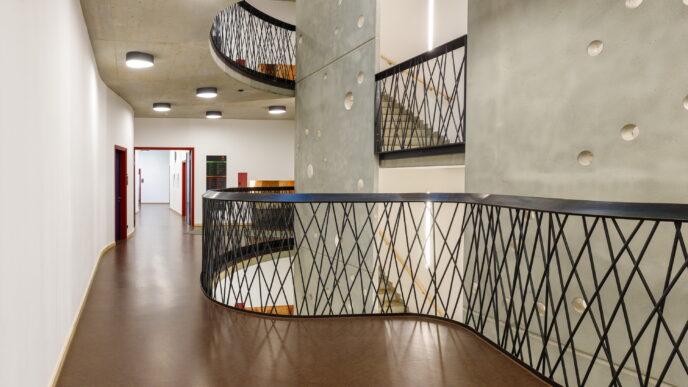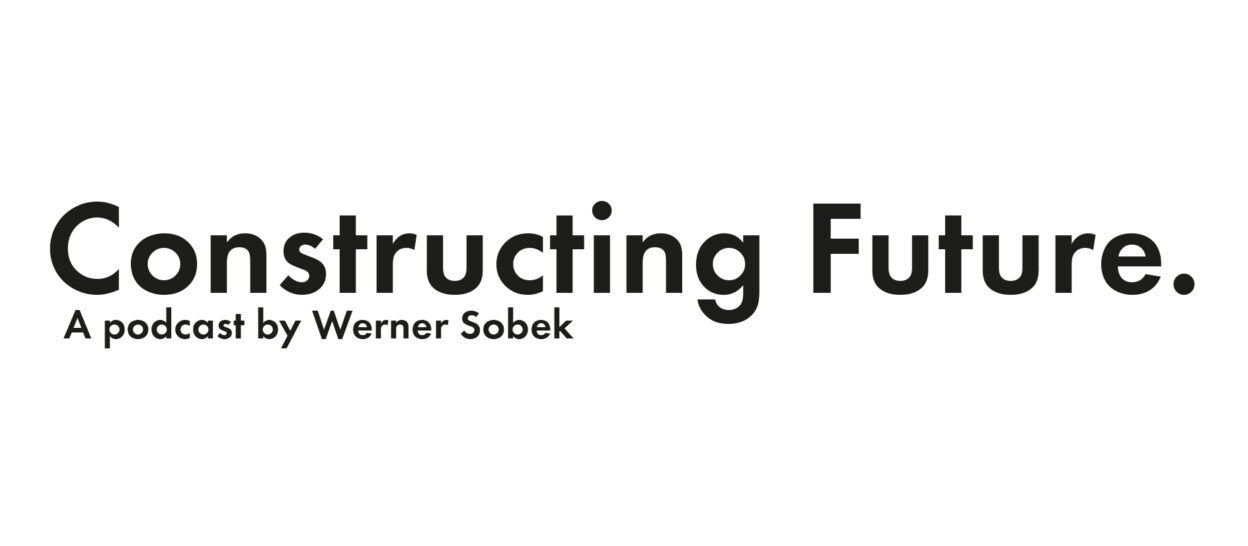
Podcasts
You want to know more about what we do but don’t have the time to read too many articles? Why not try one of our podcast episodes on ‘Future Construction’?
WS Podcast #29: Floating Pedestrian Bridges to the Train
Sonja Gepperth and Dominik Nimführ, the responsible structural engineers, discuss the special challenges and innovations involved in this project in an interesting podcast.
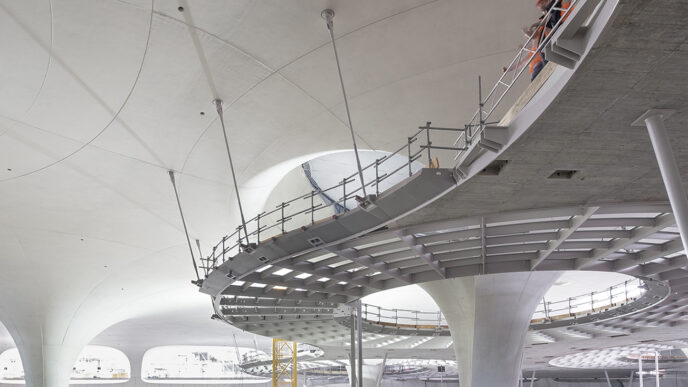
Podcast #28: The adidas ARENA in Herzogenaurach
In the podcast, team leader Angelika Schmid explains one of our most spectacular and complex lighthouse projects, the adidas ARENA in Herzogenaurach.
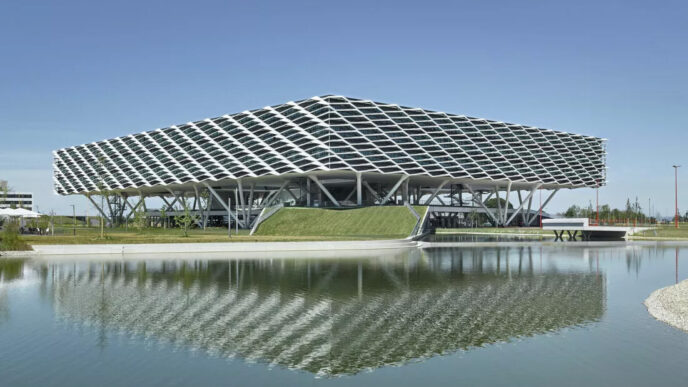
#27 Kasper Køppen, Director of Werner Sobek Copenhagen
In this very special podcast, the new director of our office in Copenhagen, Kasper Køppen, introduces himself (in english).
Podcast: one morning filmproduktion
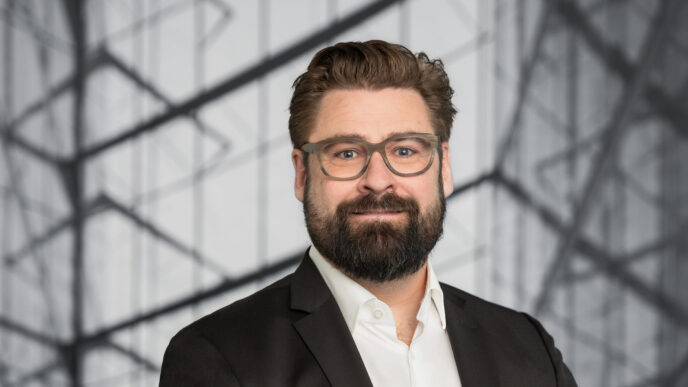
#26 Facade Planning – not Without Interdisciplinarity
Our colleague Stephan Herholz heads up one of our facade teams. In the podcast, he explains how he got into facade planning himself, what exactly this term actually means – and how he and his multicultural team master such a complex field of work.
Podcast: one morning filmproduktion
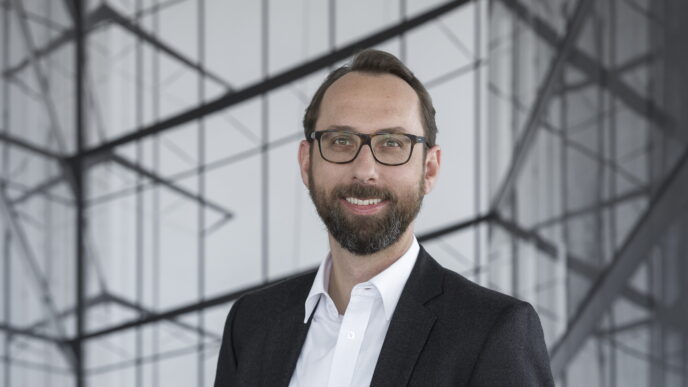
#25 Building in the Cycle
In our latest podcast, our colleagues Lena Nafe and Vanessa Propach present the Building Resource Passport. And they explain how and where the idea of the circular economy in construction is already being successfully implemented at Werner Sobek.
Podcast: one morning filmproduktion
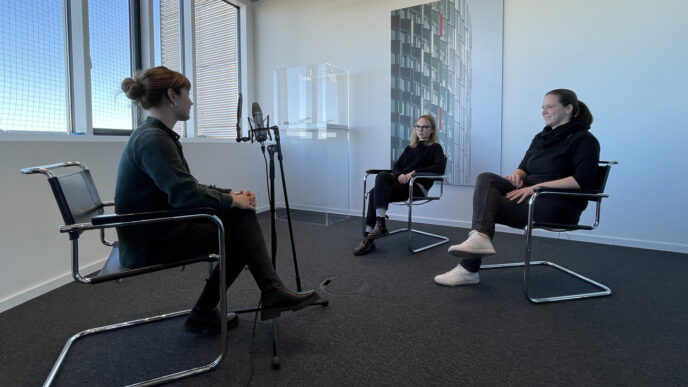
#24 Engineering, Design – and Climate Change
In our latest podcast, our colleague Lara Katscher talks about how Werner Sobek is meeting the challenges of climate change with various “green solutions”. In this work, she and her colleagues benefit from the fact that we have been dealing with the consequences of climate change for planners for a long time – even if there is still a considerable amount of work ahead of us all.
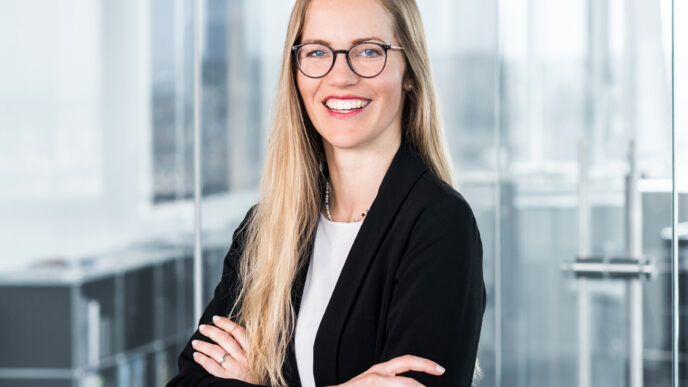
#23 Engineering Made in Berlin
In the podcast, Radu Berger talks about setting up the Berlin office and working together across teams and disciplines.
Podcast: one morning filmproduktion
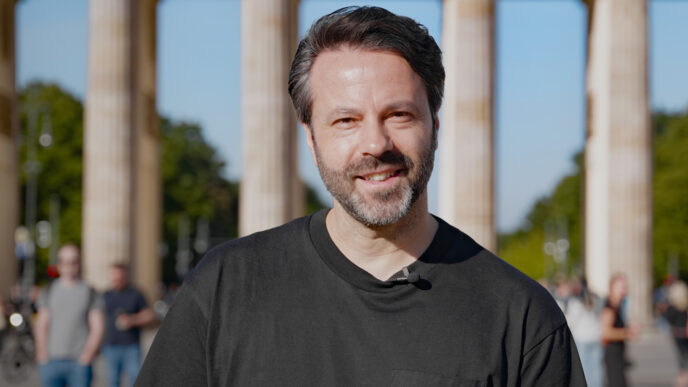
#22 Sustainable Bridge Building with Andreas Malcher (in German)
How can bridges be built sustainably and in a way that conserves resources? In a new edition of “Future Construction”, Andreas Malcher from Werner Sobek Berlin reports.
Podcast: one morning filmproduktion
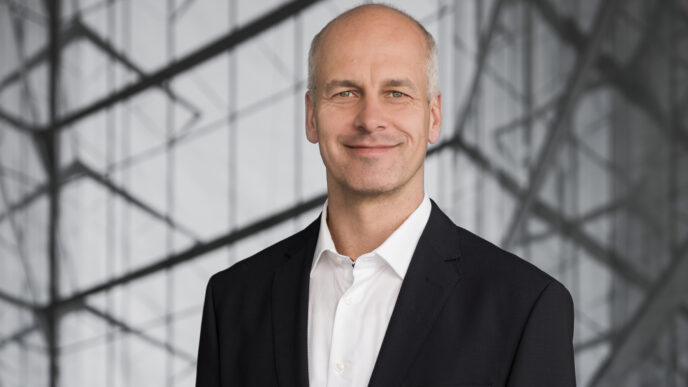
#21 Environmental Design – a New Field of Work for Planners?
In a new edition of our “Building the Future” series, our Berlin colleague Max Dölling talks about how his team implements environmental design according to Werner Sobek’s corporate philosophy.
Podcast: one morning filmproduktion
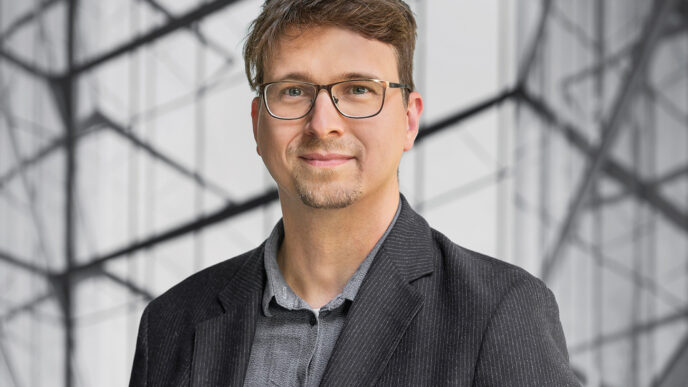
#20 Wood Hybrid Construction – the Best of Both Worlds
In a new episode of our podcast “Constructing Future”, our colleagues Thivya Athmanathan and Roland Bechmann explain why this is so and what advantages hybrid timber construction has. They explain when a mix of reinforced concrete and wood is particularly advantageous and which projects have already had good experiences with this.
Podcast: one morning filmproduktion
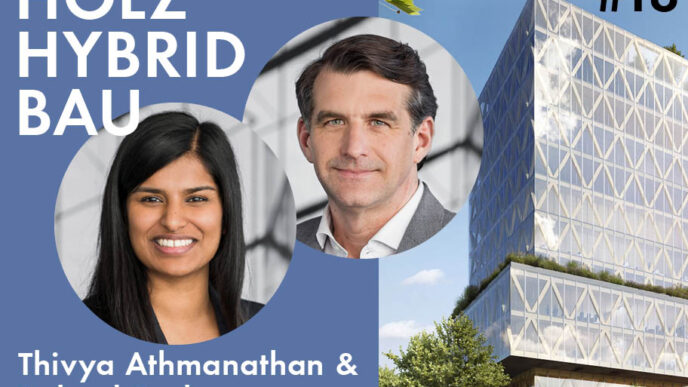
#19 Germany’s Largest Timber Module Building Project: P18
The new P18 urban quarter in Stuttgart-Bad Cannstatt is a beacon project for resource-saving and energy-efficient. In this podcast, our project manager Max Mannschreck talks about the ideas behind the planning of the project as well as the challenges associated with the rapid realisation.
Podcast: one morning filmproduktion
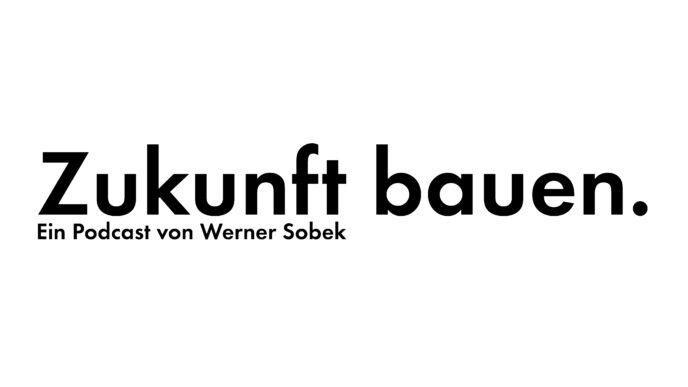
#18 Climate-Neutral Building – How does it Work?
In a new podcast by audio label STRÖM – New Audio Culture, our sustainability expert Stefanie Weidner looks at the question of whether and how the building industry can become climate neutral.
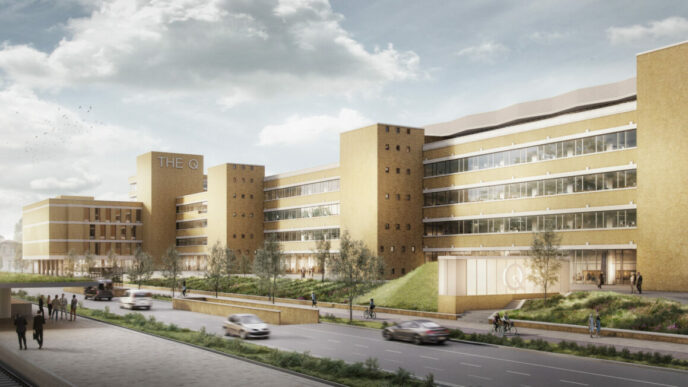
#17 Embodied Emissions and Engineering in Urban Design
In our latest podcast, our sustainability expert Dr Stefanie Weidner outlines our company’s sustainability tasks and goals. She cites case studies of successful and sustainable design and discusses what the future of urban living might look like.
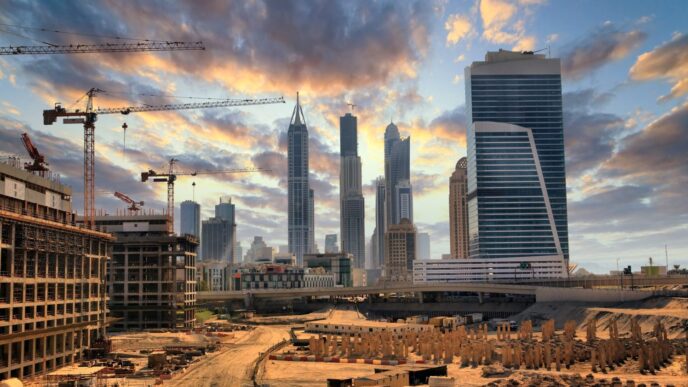
#16 The Green Heart – the New Calwer Passage in Stuttgart
From a Previously Sealed Area to a Green Oasis: In this podcast, our colleague Florian Starz gives an insight into the planning, realisation and sustainability of our facade project Calwer Passage.
Podcast: one morning filmproduktion
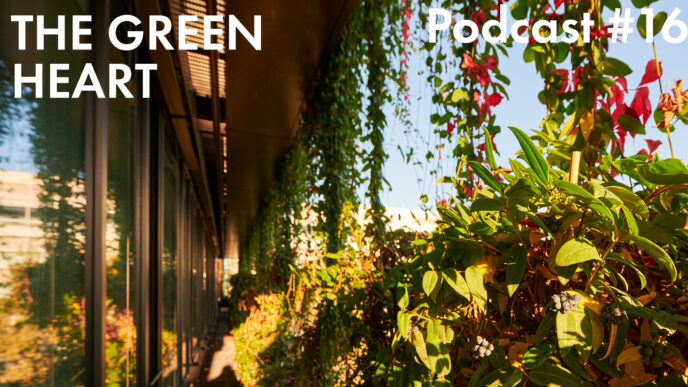
#15 Research and Innovation: The Klibau Study
In the latest edition of our podcast, Vanessa Propach and Moritz Brombacher report on our Klibau research project (further development and concretisation of climate-adapted building). In this project, they comprehensively worked out various aspects that can serve planners and builders as guidelines for building in the future.
Extreme weather conditions are becoming more frequent due to climate change – how can and how must planners react to this?
Buildings constructed today must be able to withstand the coming weather conditions decades from now. However, climate-adapted construction also means planning and constructing buildings that improve the microclimate of their surroundings. Planning decisions must therefore take into account aspects such as the possibilities of binding particulate matter, increasing biodiversity or preserving resources.
Climate-adapted building is therefore a holistic approach that is not only about ensuring the quality of the building, but also about making a positive contribution to the environment.
Podcast: one morning filmproduktion
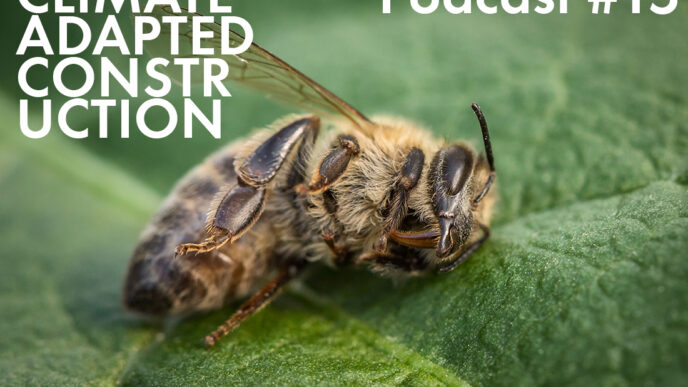
#14 Research and Innovation: Microclimate
As a result of man-made climate change, extreme weather events are occurring more frequently. In addition, heat islands are forming more and more frequently in summer, especially in our cities. These not only cause significantly higher temperatures in the inner cities, but even endanger people’s health.
Podcast: one morning filmproduktion
What can we do as planners to counteract this? And what role do research and innovation play in this area?
This is where sustainability experts like our colleague Vanessa Propach are needed. She is working on the question of how the microclimate in urban spaces can be positively influenced. An important tool for this are simulations that are carried out with the help of specially developed programmes. This allows building groupings and urban quarters to be optimised climatically at a very early planning stage.
But certification systems for recording the resilience of urban structures as well as research projects on the influence of green building envelopes are also helping Vanessa Propach to come ever closer to the goal of a built environment that is as sustainable as possible.
Listen here on SoundCloud and Spotify.
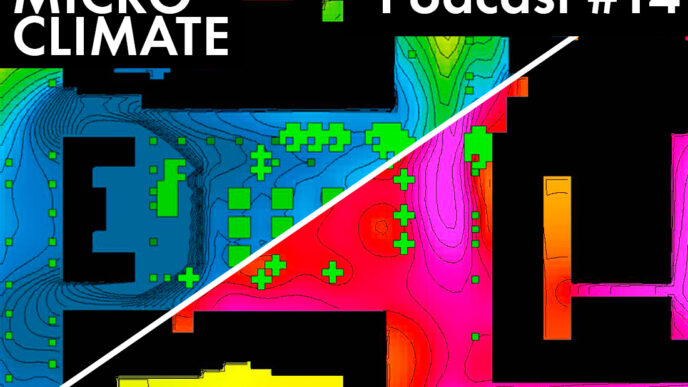
#13 Women in “Men’s” Jobs (in German)
What are women’s experiences in professions that were considered a classic male domain just a few years ago? Especially when they are in a managerial position? For our podcast, we talked to three female colleagues about this important topic. Angelika Schmid heads one of the largest teams at Werner Sobek . With Stuttgart21, she is also responsible for one of our largest projects. Dr Stefanie Weidner is responsible for the company’s sustainability strategies. She has headed our new office in Copenhagen since the beginning of 2022. Lara Katscher recently moved from our Frankfurt office to Stuttgart to take over the management of Werner Sobek Green Technologies. Three very different paths in life and areas of responsibility, but they also have a lot in common.
Listen here on SoundCloud and Spotify.
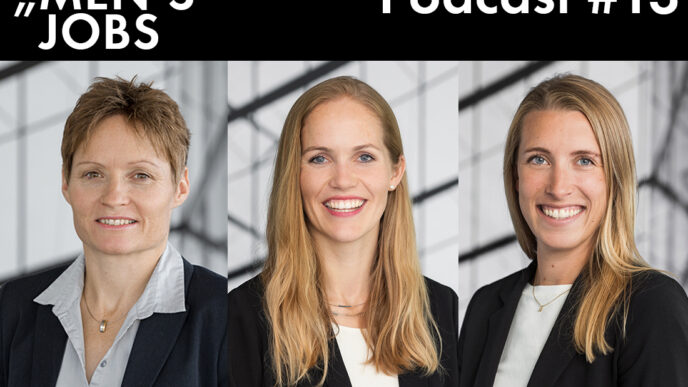
#12 AK Sustainability (in German)
The current edition of our podcast series “Constructing Future” is about how the topic of sustainability can best be implemented in everyday office life. Heike Behring interviews our colleagues Vanessa Propach and Moritz Brombacher, both members of our Sustainability Working Group. This internal working group was founded at the beginning of 2019 and has already achieved a lot in the past three years: from water dispensers and exemplary waste separation to employee e-bikes and the installation of new showers. During the discussion, it becomes clear how complex the topic of sustainability is – and how everyone can contribute to it.
Listen here on SoundCloud and Spotify.

#11 non nobis with Werner Sobek (in German)
Our latest podcast in the series “Building the Future” is dedicated to the contents of the book non nobis. Heike Bering interviews Werner Sobek on the subject of resource consumption in building. Take a listen right now.
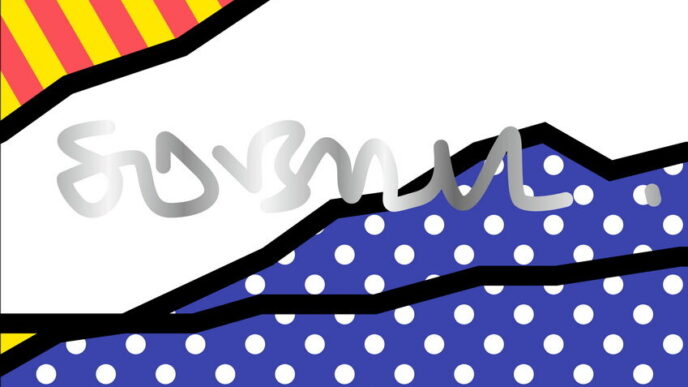
#10 Zero Emissions with Roland Bechmann (in German)
In our podcast series “Zero Emissions”, this time Roland Bechmann, board member and partner of Werner Sobek AG, is our guest. He reports on an internal task force that is investigating how we can minimise emissions and resource consumption in the construction industry through our planning. Roland Bechmann explains how this requires a permanent questioning of assumptions in all project phases and across numerous disciplines.
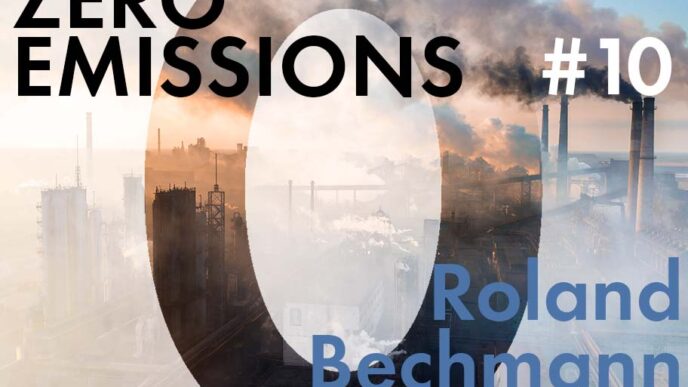
#09 Zero Emissions with Stefanie Weidner (in German)
Our podcast series “Zero Emissions” looks at the emissions directly and indirectly associated with construction – and asks how they can be reduced as quickly as possible. In the latest edition of our series, Dr. Stefanie Weidner (Director Sustainability Strategies at Werner Sobek AG) is our guest. She talks about how the hidden CO2 emissions of our buildings are calculated and how planners, builders and contractors should work together to achieve optimum savings.
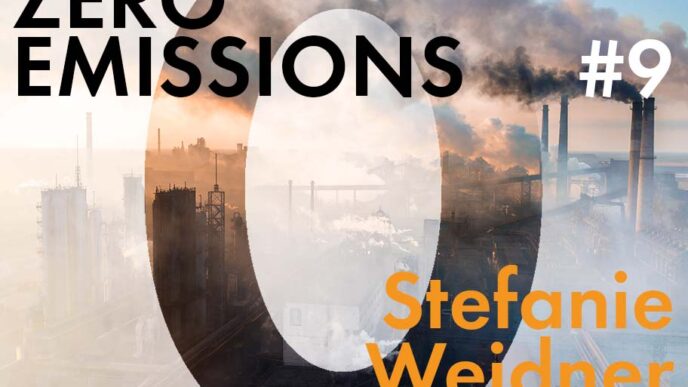
#08 Zero Emissions with Alexandra Mrzigod (in German)
“Sustainability” is not a classic planning discipline that can be considered on its own – aspects such as resource efficiency, recyclability, and user comfort can only be adequately taken into account through an iterative interaction of a wide variety of experts. In our company, we have therefore brought together specialists from all our disciplines and locations in the “Triple Zero” task force. The task force not only serves to address specific sustainability requirements in our projects. It is also a platform for internal knowledge transfer and the promotion of an interdisciplinary mindset. In this way, the foundations for truly sustainable projects are laid at an early stage. To kick off our new three-part podcast series, our colleague Alexandra Mrzigod talks about the challenges and potential of her involvement in the task force.
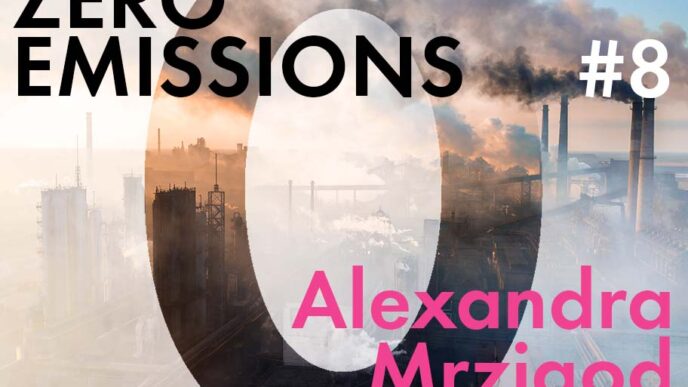
#07 Green Technologies with Patrick Bezner (in German)
Patrick Bezner, Managing Director of Werner Sobek Green Technologies, welcomes you to our new podcast. What does “Green Technologies” mean at Werner Sobek and which competences are summarized under this term? Patrick Bezner provides exciting insights into his specialist area of sustainable construction. Listen in!

#05 Adaptive Structures and Facades (in German)
How can the built environment of tomorrow be realised sustainably today? Against this background, a new episode of the podcast “Building the Future” by Werner Sobek sheds light on the importance of adaptive load-bearing structures and facades. This time, the guests are Prof. Lucio Blandini, board member at Werner Sobek and head of the Institute for Lightweight Design and Construction (ILEK) at the University of Stuttgart, and Dr. Stefanie Weidner, sustainability specialist at Werner Sobek. They present a milestone in the field of innovative construction: the demonstrator high-rise building in Stuttgart-Vaihingen. This 36.5-metre-high tower is the world’s first adaptive high-rise in which the supporting structure and facade can automatically adapt optimally to changing wind and weather conditions. This saves resources on a large scale without compromising safety or user comfort.
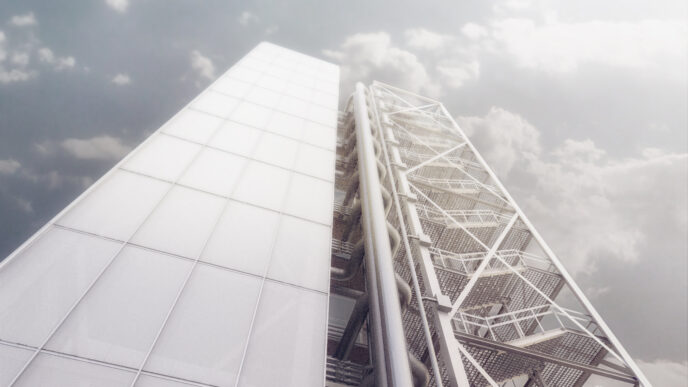
#04 Chalice supports S21 with Angelika Schmid
Angelika Schmid, authorised signatory and team leader at Werner Sobek, provides exciting insights into our office’s contribution to the major Stuttgart 21 project. Together with her team, she was responsible, among other things, for the planning of the so-called “chalice supports“. These support the roof structure of the new underground railway station in the heart of the state capital…
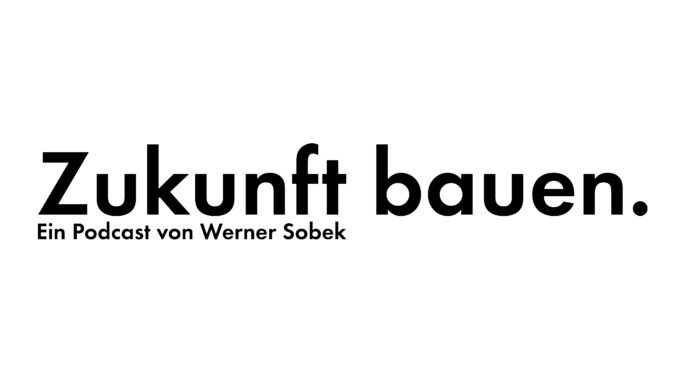
#03 Recycled Concrete (in German)
This episode’s guest is Holger Hinz, authorised signatory at Werner Sobek. He talks about a big step towards sustainability in construction: the use of recycled concrete (RC). The problem with new concrete is that on the one hand it is one of the most important building materials, but on the other hand it is also one of the biggest consumers of energy and resources and a producer of CO2 emissions. In terms of a more sustainable future, alternatives are urgently needed. According to the expert, recycled concrete could be one such alternative. In its production, crushed natural stone or naturally formed gravel is partially or completely replaced by a recycled aggregate, i.e. processed construction waste. In this way, a large part of the resources can already be saved. Hinz goes on to explain where RC is already being used today, what the cost situation is and whether it is visually different from new concrete.
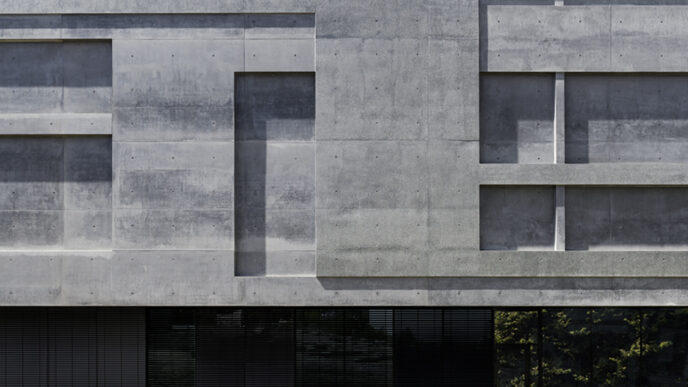
#02 Green Facades (in German)
Green facades can make an important contribution to improving the microclimate in our cities. For this reason, they are increasingly coming into the focus of builders and architects. But what does incorporating so much biomass into a technical system mean from a practical point of view? What requirements do structural and façade planners have to take into account? Florian Starz is an expert for green facade systems at Werner Sobek. He reports from planning practice.
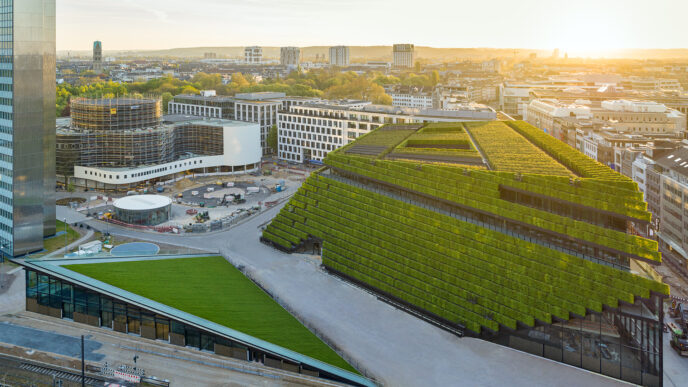
#01 Regenerative Architecture (in German)
Construction is responsible for more than half of the world’s resource consumption and waste generation. Time for a rethink. We are already looking for solutions today, for a sustainable built environment tomorrow. One answer is based on the concept of regenerative building. This profound approach to solutions was developed within the framework of a 4-year EU project, which ended in April 2021, with the participation of Werner Sobek, and offers tangible approaches for building practice. Project manager Giulia Peretti explains the concept and how it can already be applied in practice today.
